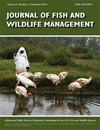盲区中的陌生人:为招募水禽猎人确定合适的被指导者和指导者
IF 0.9
4区 环境科学与生态学
Q4 BIODIVERSITY CONSERVATION
引用次数: 0
摘要
为了扭转狩猎参与率下降的趋势,最近实施了招募、保留和再激活(R3)计划和机会。其中一些项目使用导师来复制传统的狩猎途径,但很少有数据可以检验导师与学员之间的关系。我们调查了几个中西部州的水禽猎人和非水禽猎人,通过一系列问题确定导师是否可能接受某些类型的学员进行水禽狩猎,以及学员是否可能接受某些类型的导师进行水禽狩猎。我们发现,水禽猎人愿意接受大多数类型的学员,除了他们以前没有见过的猎人。最常见的不愿意指导的原因是水禽猎人认为缺乏技能。非水禽猎人最有可能接受家庭成员或朋友的指导。不舒服的感觉和渴望专注于其他活动是最常见的非水禽猎人不希望接受指导的原因。我们的研究结果表明,没有考虑或纳入学员和导师之间密切的社会联系的R3项目可能不会像那些考虑或纳入的项目那样成功。本文章由计算机程序翻译,如有差异,请以英文原文为准。
Strangers in the blind: Identifying appropriate mentees and mentors for waterfowl hunter recruitment
Recruitment, retention, and reactivation (R3) programs and opportunities have been recently implemented to reverse trends in declining hunting participation. Some of these programs use mentors to replicate traditional pathways into hunting, but few data are available that examine the mentor-mentee relationship. We surveyed waterfowl hunters and non-waterfowl hunters in several Midwestern states to identify through a series of questions whether mentors would likely accept certain types of mentees for waterfowl hunting and whether mentees would likely accept certain types of mentors for waterfowl hunting. We found that waterfowl hunters were willing to accept most mentee types except for hunters they had not met previously. The most frequently reported reason for unwillingness to mentor was a perceived lack of skill by the waterfowl hunter. Non-waterfowl hunters were most likely to accept mentoring by a family member or friend. Feelings of being uncomfortable and desire to focus on other activities were the most frequently reported reasons for non-waterfowl hunters not wishing to be mentored. Our results indicate that R3 programs that do not consider or incorporate a close, social connection between mentees and mentors may not be as successful as those that do.
求助全文
通过发布文献求助,成功后即可免费获取论文全文。
去求助
来源期刊

Journal of Fish and Wildlife Management
BIODIVERSITY CONSERVATION-ECOLOGY
CiteScore
1.60
自引率
0.00%
发文量
43
审稿时长
>12 weeks
期刊介绍:
Journal of Fish and Wildlife Management encourages submission of original, high quality, English-language scientific papers on the practical application and integration of science to conservation and management of native North American fish, wildlife, plants and their habitats in the following categories: Articles, Notes, Surveys and Issues and Perspectives. Papers that do not relate directly to native North American fish, wildlife plants or their habitats may be considered if they highlight species that are closely related to, or conservation issues that are germane to, those in North America.
 求助内容:
求助内容: 应助结果提醒方式:
应助结果提醒方式:


